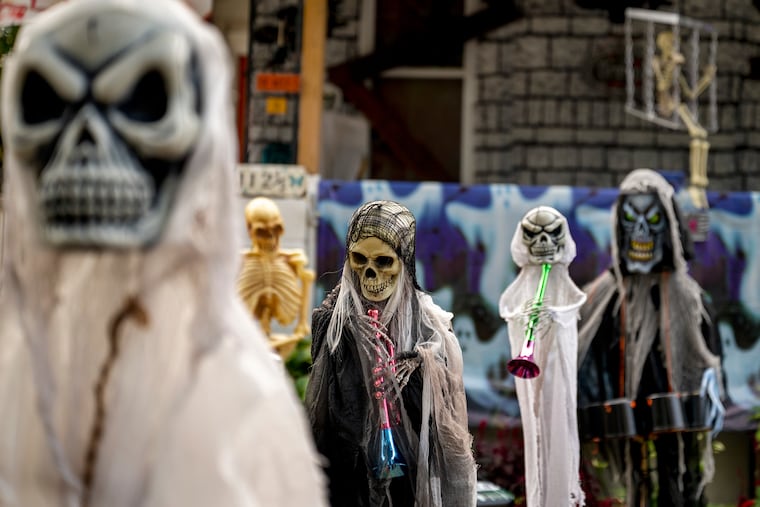Happy Hallowe’en! No, that apostrophe isn’t a typo. Here’s why. | The Grammarian
There are a lot of excellent reasons why we should restore the apostrophe to Hallowe’en.

Allow me to be the first person — maybe ever — to wish you a happy Hallowe’en!
And isn’t that a damn shame?
You wouldn’t know it from the ubiquitous fly-by-night Spirit Halloween stores that pop up as the grim reaper of big retail for a few weeks every year — so fleeting that their official website lists nearly every location as the site of a “former [AC Moore/Modell’s/Ulta/Office Depot/something else]” — but Halloween used to be spelled Hallowe’en. Although this column usually believes when it comes to punctuation, less is more, there are a lot of excellent reasons why we should restore the apostrophe to Hallowe’en.
Consider yourself spooked.
It teaches etymology. Halloween comes from Hallowe’en, which comes from All Hallows’ Even or All Hallows’ Eve, which marks the day before All Hallows’ Day— Nov. 1. There’s a lot of ancient history about churches and feasts and saints and things that have nothing to do with stuffing candy in pillowcases, but that’s where the marketing gets brilliant: Fun-sized treats draw kids in, but what if they were to then learn that the word Hallowe’en is the fun-sized version of something older, bigger, and potentially better? The precocious ones are going to seek out what All Hallows’ Eve and All Hallows’ Day are, if only because maybe those holidays carry the promise of king-sized candy bars.
For some denominations, All Hallows’ Day is the Feast of All Saints, so they’re not far off.
It teaches possessives. After students have learned etymology, they’ll see a possessive apostrophe follows Hallows. When a word ends in S and needs a possessive, everyone freaks out — with good reason. If that word is a singular noun — octopus, bus, Marcus — there’s no universal rule that says whether its possessive should be s-apostrophe-s or just s-apostrophe. Different usage guides dictate different rules, so the good news is that you can’t be wrong. (The bad news: You’ll never be certain that you’re right.)
But for plurals, you definitely can be wrong. Pretty much everyone agrees that if the noun is plural, like Hallows, the possessive just adds an apostrophe to the end without an extra S. Get them secure on one rule before they’re dismayed that they’ll never master the other.
It teaches contractions. Most students learn that contractions are bogeymen to be avoided: can’t, couldn’t, won’t, etc. “They’re not formal,” some say. “They’re not proper.”
Talk about scary stories.
Contractions are sexy abbreviations that speed you to your verb (or wherever you’re going) without extra, distracting syllables. Encouraging kids to use contractions will make them better writers because they’ll understand good writing should be enjoyed, not held in a glass case.
Imagine if they learn their favorite (because of the aforementioned candy) holiday is also a contraction. What could be sweeter than that?
It’s scarier. It’s been more than 200 years since the apostrophe started to fall out of Hallowe’en. Almost no one includes that apostrophe now, which means its usage makes the holiday feel older, dustier, creepier — like a word tumbling out of a coffin.
That’s one talented punctuation mark.
The apostrophe restores some of Hallowe’en’s mystery and magic, and makes it about more than just a Reese’s allure … or is it Reeses’ … or Reese’s’ … or Reese’s’s … oh, boo.
Oh. Boo!
The Grammarian, otherwise known as Jeffrey Barg, looks at how language, grammar, and punctuation shape our world, and appears biweekly. Send comments, questions, and absolute possessives to jeff@theangrygrammarian.com.
Read more from The Grammarian
Biden’s ‘I’ll be darned’ packs a bigger punch than Trump’s F-bombs
Calling people ‘the unvaccinated’ could be a deadly shift in language